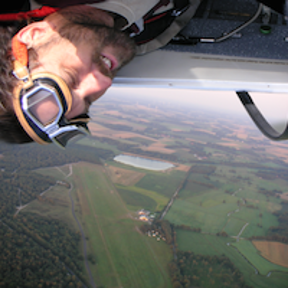Welcome to the Onshape forum! Ask questions and join in the discussions about everything Onshape.
First time visiting? Here are some places to start:- Looking for a certain topic? Check out the categories filter or use Search (upper right).
- Need support? Ask a question to our Community Support category.
- Please submit support tickets for bugs but you can request improvements in the Product Feedback category.
- Be respectful, on topic and if you see a problem, Flag it.
If you would like to contact our Community Manager personally, feel free to send a private message or an email.
Render Studio: Image Mapping
 martin_kopplow
Member Posts: 1,209 PRO
martin_kopplow
Member Posts: 1,209 PRO
in General
I may have missed something here, but I can't find the current method of applying images to rendered objects in the render studio. I've searched the learning and help resources, but to no avail. Maybe I used the wrong keywords. For now, I photoshopped it, but that can't be the way. Could somebody point me in the right direction, please?
Thanks,
Martin
Tagged:
0
Comments
It's a bit of a convoluted process but here's the step by step (from the help…) https://cad.onshape.com/help/Content/render-studio-interface.htm#adding-a-sticker
Hi Eric,
I already found that sticker appearance, but it does not let me select a bitmap file. I can only activate the colour selector there. Bug or my fault?
The article referred to above has instructions on connecting the "Bitmap image" function to the color which allows you to then select the bitmap file.
Well … I read what is written there, but it does not work as written, at least for me. If I follow the steps and assign the sticker appearance to a face of my model, then open the appearance panel, go to the appearance library, drop-apply the import image file function (despite it was so well hidden from user access!), then I see an option to select an image file, with "Black" being the default image. My selected face turns black.
I select an image file I had previously imported into my document. But nothing can be seen on my model. It is still black. There is no hint or option where I could maybe scale it to fit or something. Where is the mapping origin? Orientation? Boundaries?
This UI is as UNINTUITIVE as it gets, worthy of Catia and the likes, but not for Onshape! Really. This is bad UI design. The explanation in the article reflects this by being as confusing as could be. If there is a logical concept behind how the workflow is designed (which I doubt) then it would probably be a good thing to explain that concept first, not just try to lead a blind man through the forest in a step by step approach and then say: Now that you missed all the trees, walk back on your own.
I'm sorry, but this really disappointed me. We're all designers here. We know how things work and how to design things so people understand how to use them, but this part of the interface is the opposite. It does not fit in. So many missed opportunities here in this render studio.
If it really works, below is a simple model of a display module. Could someone put the supplied image onto the display so I can see whow it should look like with all the settings and stuff?
Model
As has been discussed in other threads, we are definitely aware that the Add sticker workflow is not intuitive and it is not intended to be an approach that would be the only option in the future. It is essentially a work-around for the time being.
That being said, for cases where the image needs to take up the entire surface there is a relatively simple fix to the placement issue and that is to use the "Surface" projector mode which will just make the image fill the whole surface. This is not the default since a lot of appearances in the library benefit more from the default "Auto" projector which for a lot of cases (but unfortunately not stickers) means users usually don't have to worry about texture orientation.
In terms of having to connect the bitmap through a function to the sticker, this is due to the flexibility of that appearance which allows also connecting non-bitmap things (e.g., procedural functions) as the sticker color. There is also a "Display screen" appearance which just takes an image directly without any of this which you can also use.
Here are two Render Studios setup with sticker and display respectively.
https://cad.onshape.com/documents/5181d46489b1ef840e2080f6/w/2c70032fb285009c20a7ed86/e/1323196e6e3de5b27a036718
https://cad.onshape.com/documents/5181d46489b1ef840e2080f6/w/2c70032fb285009c20a7ed86/e/8bd5467fbbc8f7ef360fdce1
Some notes I what I did here.
For the sticker method.
The flipped image is a result of the direction of the surface parameters on the geometry.
For the display screen method.
This appearance makes the display screen emissive, so it will cast light into the scene. This may or may not be desirable in some cases so which you choose may depend on your use case.
As I say, we are definitely aware this workflow is not ideal and we are working on ways to try and make that simpler in the future.